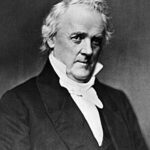The Constitutional Crisis
President James Buchanan faced the nation’s gravest constitutional emergency after Lincoln’s 1860 election victory. ⚠️ Seven Southern states threatened immediate secession over slavery expansion fears. Buchanan declared secession illegal under the Constitution. However, he simultaneously claimed federal government lacked constitutional authority to prevent state withdrawal. This contradictory position paralyzed federal response during the critical transition period.
Buchanan’s Passive Response
The lame-duck president adopted a hands-off approach to the secession crisis. He refused military intervention to preserve federal authority in Southern states. 📊 South Carolina seceded December 20, 1860, followed by six other states by February 1861. Buchanan’s inaction allowed Confederate government formation before Lincoln’s inauguration. His administration watched helplessly as federal property fell under Confederate control.
Critical Missed Opportunities
Buchanan rejected Cabinet members’ advice for decisive federal action against seceding states. 💰 He allowed Southern states to seize federal arsenals, forts, and customs houses worth millions. The president’s constitutional interpretation prioritized avoiding conflict over preserving Union integrity. This Buchanan failure to prevent secession created irreversible momentum toward armed conflict.
Impact:
Civil War Catalyst
Buchanan’s inaction during the secession crisis directly contributed to Civil War outbreak in April 1861. 🔥 His failure to prevent Southern secession allowed Confederate government to organize and prepare militarily. Seven states had already left the Union when Lincoln assumed presidency. The new president inherited a nation already fractured beyond peaceful reconciliation. Buchanan’s passive stance made armed conflict virtually inevitable.
Political and Constitutional Consequences
The secession crisis exposed fatal weaknesses in constitutional frameworks regarding state withdrawal. 📉 Buchanan’s contradictory legal position created dangerous precedent for federal inaction during constitutional emergencies. His administration’s paralysis emboldened other Southern states to consider secession. The crisis permanently altered federal-state power relationships and constitutional interpretation.
Historical Legacy
Historians consistently rank Buchanan among America’s worst presidents due to his secession crisis mismanagement. 🌍 His failure transformed a political dispute into an armed conflict costing 620,000 American lives. The four-year Civil War devastated the national economy and social fabric. Buchanan’s inaction during this critical period overshadows any other accomplishments of his presidency. Modern scholars view his constitutional interpretation as dangerously naive given the crisis’s magnitude.
